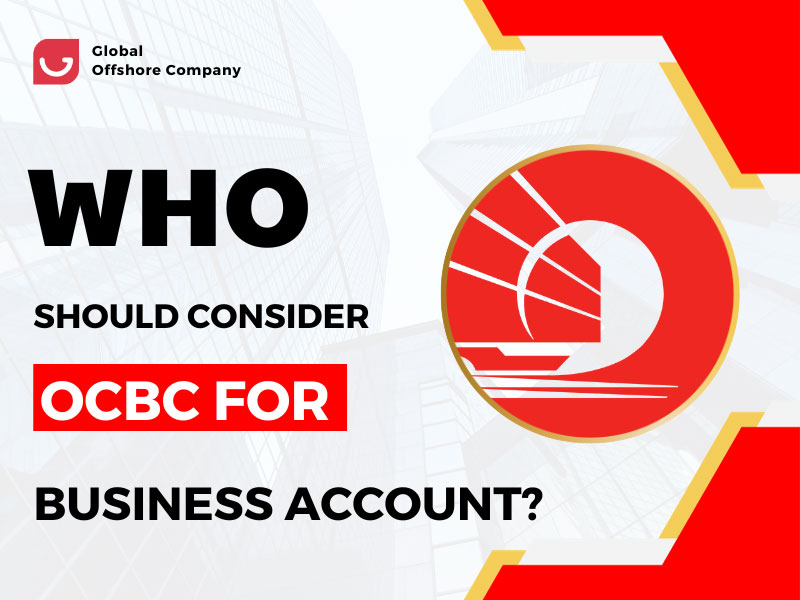An Overview of Offshore Bank Account
Offshore bank accounts have long captured the imagination of individuals and businesses seeking financial privacy, asset protection, and tax benefits. These accounts, held in foreign jurisdictions, are shrouded in mystery and misconception. In this comprehensive guide, we will demystify offshore bank accounts, exploring their purpose, benefits, potential drawbacks, and the legal landscape surrounding them.
What is an Offshore Bank Account?
An offshore bank account is simply a bank account held in a foreign country. Individuals and businesses opt for offshore accounts for various reasons, such as diversifying investments, safeguarding assets, and reducing tax liabilities. These accounts can hold multiple currencies and provide access to international financial services.
The Purpose of Offshore Bank Accounts
- Asset Protection: Offshore accounts can help safeguard assets from lawsuits, creditors, and political instability in one's home country. The legal frameworks in some offshore jurisdictions make it difficult for external parties to access your funds.
- Financial Privacy: Offshore bank accounts are known for their strict confidentiality and privacy protections. They provide a shield against prying eyes, offering individuals and businesses a way to keep their financial affairs discreet.
- Tax Planning: Some offshore jurisdictions offer favorable tax structures, allowing account holders to minimize their tax obligations legally. This can be especially attractive to high-net-worth individuals and corporations.
- Currency Diversification: Offshore accounts often support multiple currencies, making them useful for managing international financial affairs and mitigating currency risk.
- International Business: Offshore accounts facilitate international business transactions by providing easy access to foreign currencies, international wire transfers, and payment processing services.
Benefits of Offshore Bank Accounts
- Tax Efficiency: One of the most significant advantages of offshore accounts is the potential for reduced taxation. Many offshore jurisdictions offer low or zero tax rates on income, capital gains, and inheritance, allowing account holders to legally minimize their tax liabilities.
- Privacy and Confidentiality: Offshore accounts provide a high level of financial privacy. Strict banking secrecy laws protect account holders' identities and financial transactions, making it difficult for unauthorized parties to access information.
- Asset Protection: Offshore accounts can be used to shield assets from potential lawsuits, creditors, or government seizure. This is especially valuable for individuals and businesses concerned about legal vulnerabilities.
- Diversification: Holding assets in different currencies and jurisdictions reduces risk and helps diversify your investment portfolio, potentially leading to better risk management.
- Ease of International Transactions: Offshore accounts streamline international transactions, making it easier to do business or manage personal finances on a global scale. They often offer a range of financial services, such as foreign exchange and payment processing.

Drawbacks and Considerations
- Regulatory Complexity: Opening and maintaining an offshore account can be legally complex and may involve navigating foreign regulations and compliance requirements.
- Costs: Offshore accounts often come with setup fees, annual maintenance costs, and transaction fees, which can add up over time.
- Risk of Scams: In less reputable offshore jurisdictions, there may be an increased risk of financial scams and fraudulent schemes. It's crucial to choose a well-established and reputable bank.
- Changing Regulations: Tax laws and regulations in offshore jurisdictions can change, affecting the benefits and potential drawbacks of holding an offshore account. Staying informed about evolving laws is crucial.
- Perception and Reputation: Holding an offshore account can sometimes be perceived as unethical, potentially harming your personal or business reputation, particularly in the public eye.
- Limited Deposit Insurance: Offshore accounts may offer limited or no deposit insurance, which means that your funds are not guaranteed in the event of a bank failure.
Notable Offshore Jurisdictions
- Switzerland: Known for its strict banking secrecy laws, Switzerland has long been a preferred destination for those seeking financial privacy.
- Cayman Islands: A British Overseas Territory, the Cayman Islands offer favorable tax conditions and have become a prominent offshore financial center.
- Singapore: Singapore is renowned for its political stability, strong financial infrastructure, and competitive tax system.
- Panama: Panama offers privacy and favorable tax policies, attracting international businesses and investors.
- Luxembourg: Luxembourg is a key player in the European financial landscape, offering a range of financial services and tax advantages.

Legal Compliance and Transparency
The global landscape for offshore bank accounts has evolved significantly over the years. With increasing scrutiny and international pressure, many offshore jurisdictions have adapted their regulations to align with international standards for financial transparency. Key developments in this regard include:
- Common Reporting Standard (CRS): Over 100 countries have committed to implementing the CRS, an international standard for the automatic exchange of financial account information. This helps tax authorities track and report account holders' financial data.
- Anti-Money Laundering (AML) Regulations: Offshore banks are now subject to stringent AML regulations aimed at preventing money laundering and terrorist financing.
- Foreign Account Tax Compliance Act (FATCA): The United States requires foreign financial institutions to report on the financial accounts of U.S. taxpayers to the Internal Revenue Service (IRS).
- Beneficial Ownership Reporting: Several countries are moving towards greater transparency by requiring the disclosure of beneficial ownership of offshore entities.
The Future of Offshore Banking
The future of offshore banking is marked by a shift toward increased transparency and regulatory compliance. As international efforts to combat tax evasion and money laundering continue to grow, offshore jurisdictions are adapting to meet these demands.

Conclusion
In conclusion, offshore bank accounts offer a range of benefits, from tax efficiency to asset protection, but they also come with regulatory complexities and reputational considerations. It's essential to carefully evaluate your needs and consult with financial and legal professionals before opening an offshore account. The landscape of offshore banking is evolving, and understanding the legal and regulatory environment is crucial to make informed decisions about your financial affairs. Whether you're seeking to diversify your investments, protect your assets, or optimize your tax situation, offshore accounts can be a valuable tool when used prudently and in compliance with the law.
Our experts at G.O.C. can answer any queries you have regarding how to create an offshore bank account. Our pros have years of experience and can help you through the application procedure in a way that protects your application from being denied.

Disclaimer: This article is for informational purposes only and does not constitute legal or financial advice. Consult with professionals before making any financial decisions.*










